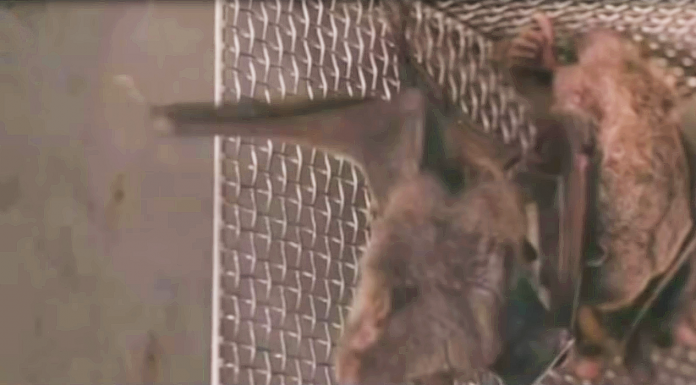(José Niño, Headline USA) Anthony Fauci may be gone, but his controversial experiments continue.
The Trump administration, despite its stated intentions to scale back taxpayer-funded animal experiments, is moving forward with a new infusion of millions of dollars for a controversial bat virus laboratory in Colorado, according to a report by The Washington Times.
The lab, under construction at Colorado State University (CSU) in Fort Collins, is designed to host a breeding colony for bats to be used in researching dangerous pathogens such as Ebola, Nipah, and coronaviruses. Besides conducting some of its own research, the facility will also supply bats to other domestic labs for similar studies.
Last year, the future of this project was put in question after its original bat supplier, EcoHealth Alliance, was banned from receiving federal contracts due to its role in funding the Wuhan laboratory, which officials believe played a role in the coronavirus pandemic.
However, the National Institutes of Health (NIH) under President Trump provided the lab with an additional $2.2 million on September 15. This funding will support studies involving Nipah virus, SARS-CoV-2, and two closely related coronavirus variants, BANAL-52 and BANAL-236, The Washington Times reported.
CSU defended the project, stating, “The establishment of this resource will lead to a better understanding of how bats host highly pathogenic viruses without disease and may shed light on events that increase spillover risks to humans… this information could lead to mitigation strategies to prevent future virus spillover and uncover new strategies for therapeutic treatment of coronavirus and Nipah virus diseases.”
Criticism has been swift from several lawmakers. Sen. Joni Ernst, R-Iowa, remarked, “When I disbarred EcoHealth from receiving taxpayer funds for sketchy research in China, that was not an invitation for the NIH to conduct the same shady experiments in our own backyard… it’s like a bad sequel. Same plot. Same cast of characters, but a bigger budget!” She vowed to work to stop what she called “batty experiments once and for all.”
NIH’s current director, Jay Bhattacharya, had himself voiced strong reservations about the lab last year. “I don’t understand how do you prevent a pandemic with this research,” Bhattacharya said in remarks to the Fort Collins community, expressing concern about the potential global impacts and lack of local transparency. He noted, “Why is it that only a small group of people gets to decide what risks the entire world gets to take?”
Others, like Justin Goodman of White Coat Waste Project, noted the abrupt policy reversal by NIH leadership: “When he [Bhattacharya] became NIH Director, we were counting on him to shut it down — but instead his agency is forking over millions more… it’s a recipe for disaster. Taxpayers need another Fauci bat virus lab on U.S. soil like they need a hole in the head.”
CSU has emphasized that strict biosafety protocols will be in place, including restricted access, required protective equipment, and comprehensive decontamination procedures. The school stated it has severed ties with EcoHealth Alliance and does not plan to conduct gain-of-function research that could increase the risk of viral transmission to humans.
Before the September grant, the lab had already received $9 million in federal funding, drawing further scrutiny from Congress.
José Niño is the deputy editor of Headline USA. Follow him at x.com/JoseAlNino

